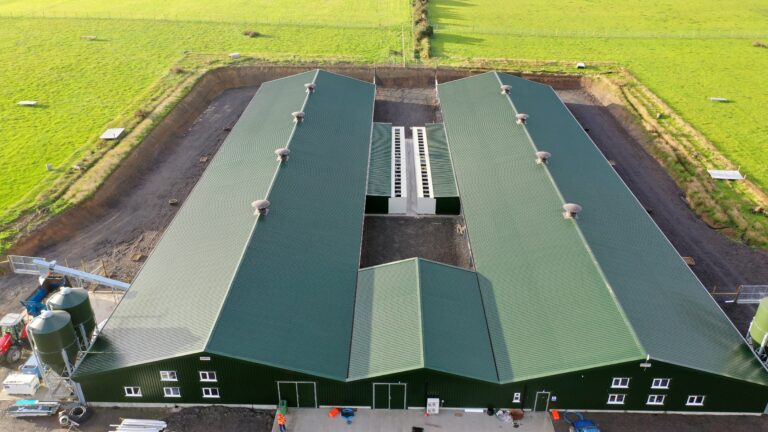Over the past eight months Powell & Co has seen more activity within the free-range egg sector due to demand increasing for a product that has until recently been in short supply.
A number of producers who had plans for expansion when the egg market began struggling put their jobs on hold. Those producers are now coming back to Powell & Co, looking to build new units. A number of these are now under construction, often with innovative design features.
“Our customers are considering new technology and innovative solutions such as cooling, manure drying and heat recovery options,” says Emma Mingo, sales manager at Powell & Co. The majority of people making enquiries are producers who already have units in place and are looking to expand, adds Mingo.
“We have seen a variety of demand for 16k, 32k, and even some 64k capacity buildings, however those building the smaller units have been putting them in with the potential to expand easily in the future.”
And it’s not just free-range egg producers who are signing on the dotted line. An upturn in broiler house refurbishment is evident, Mingo says, because of the need to meet the Red Tractor standards of 3% natural daylight by October this year. Many farmers are taking this opportunity to upgrade their biosecurity, ventilation and, or their equipment, as well as having new windows put in.
Another driver for investment has been some changes made to one poultry integrator’s business strategy. As has been widely reported within the industry, Avara’s decision to close one of its poultry processing plants has led to some producers moving away from turkey production. Some are switching to broilers, which necessitates refurbishment of the buildings. These changes have been making farmers think how they move their business forward with the changing climate.
Farmers are having to consider key points like avian influenza (AI) and IPPC permits: AI due to certain species (especially turkeys) being more susceptible and with no insurance, making the business vulnerable, and IPPC permits due to the environmental and planning time constraints. “The financial implications of such a decision are not to be overlooked,” says Mingo.
“It has been important for us to adapt as a business over the last couple of years in order to remain at the forefront of our industry. We have continued to focus on after care for the producer once units are in place; recently that has meant a greater focus on issues such as AI. Being able to evolve has enabled us to remain competitive in what remains a turbulent industry.”


